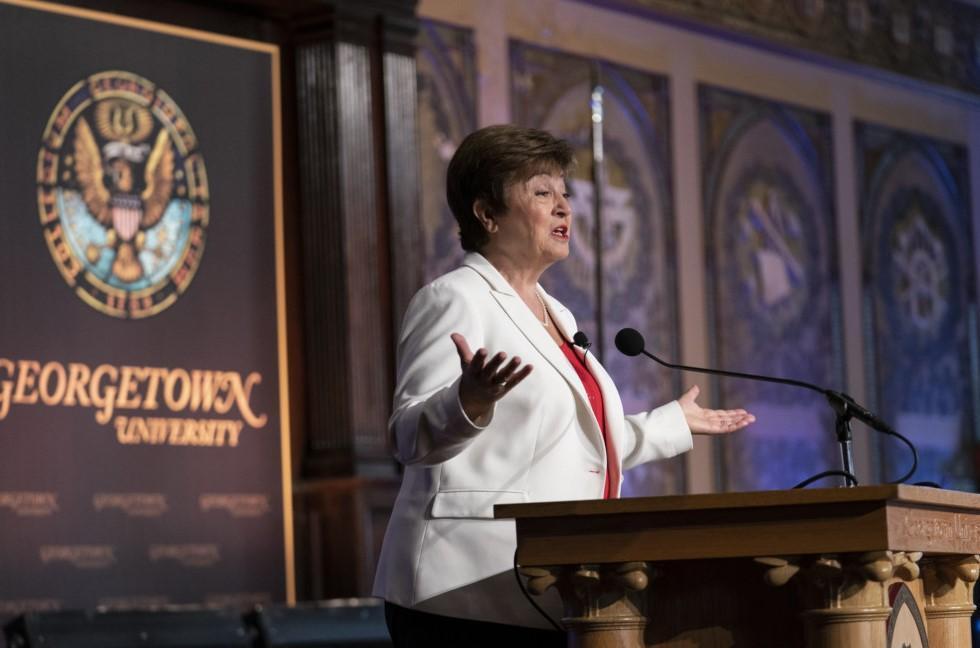
IMF chief Kristalina Georgieva has urged global policymakers to take concerted action to avoid a “dangerous ‘new normal,’” as the risks of a worldwide recession are driven ever higher by repeated economic shocks.
In a speech ahead of the fund’s annual meetings next week, the IMF’s managing director said it was critical to “stabilize the global economy by addressing the most immediate challenges”, including rampant inflation.
Policymakers need to act together to “prevent this period of heightened fragility from becoming a dangerous ‘new normal,’” Georgieva said.
But she warned the process will be painful - and acknowledged that if central banks move too aggressively to tamp down price pressures, it could trigger a “prolonged” economic downturn.
Finance ministers and central bank governors from more than 180 nations will gather next week in Washington for the first fully in-person meeting of the International Monetary Fund and World Bank since 2019, prior to the COVID-19 pandemic.
The meetings come at a difficult time for the global economy, with the pandemic largely under control, but soaring prices and rising interest rates now threatening to reverberate around the globe and choke off nascent recoveries.
But the IMF chief said it is too soon for major central banks to pull back in the battle against inflation that has reached its highest in four decades.
Inflation remains “still stubborn, still persistent,” Georgieva told AFP in an interview.
“The risk of doing not enough is bigger than the risk of doing too much,” she said. “Clearly they have to do more. They have to stay the course.”
Amid a “darkening global outlook ... the risks of recession are rising,” Georgieva said in her speech, noting that a third of countries are expected to see at least two quarters of contraction.
And “even when growth is positive, it will feel like a recession” because of rising prices eroding incomes.
The crisis lender plans to once again downgrade its 2023 forecast for the world economy, in the report due to be published next week for the annual meeting.
The fund in July slashed its growth forecast for this year to 3.2 percent, and for next year to 2.9 percent -- the third consecutive downgrade.
“In less than three years we lived through shock, after shock, after shock,” Georgieva said in her speech at Georgetown University.
“Far from being transitory, inflation has become more persistent,” and acting before high prices become entrenched is a key challenge for policymakers,” Georgieva said.